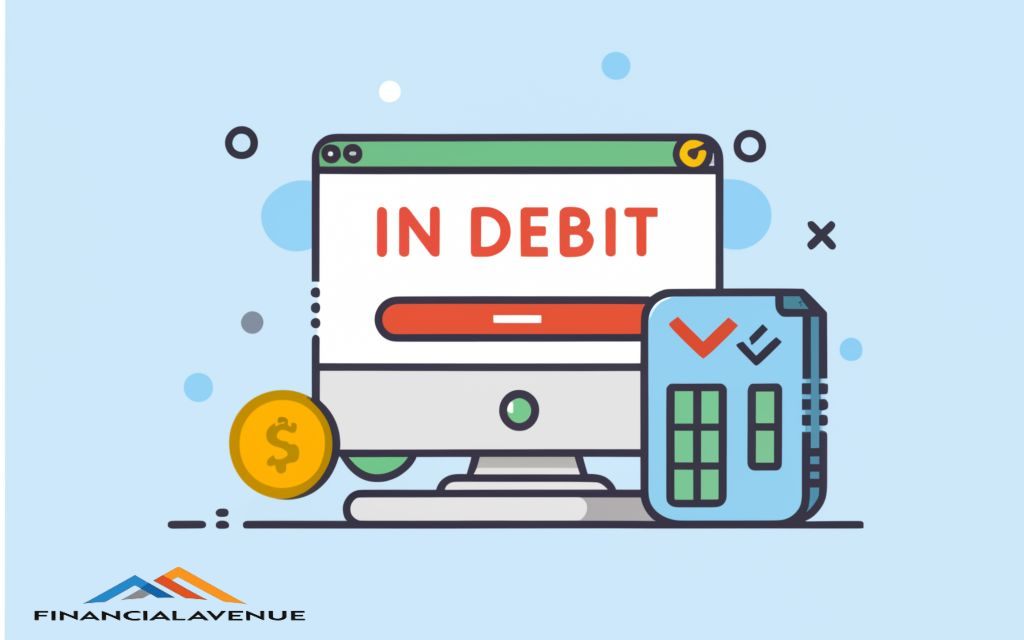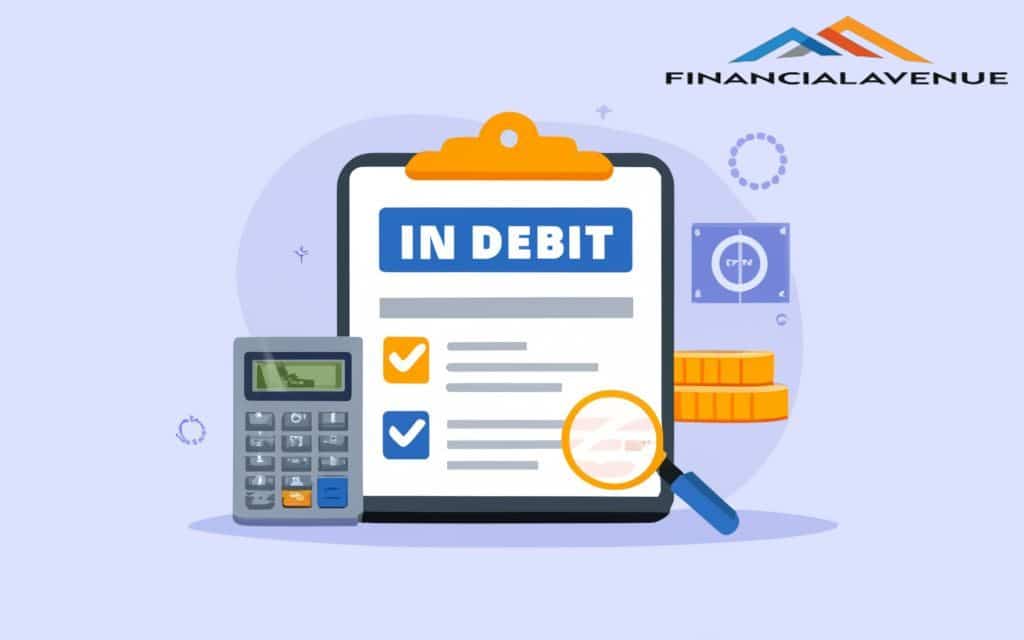Seeing the term “in debit” on your energy bill can be confusing. It sounds concerning – like you owe the energy supplier money that needs to be paid right away. However, being in debit on an account is common, and you typically don’t have to panic and pay the full amount instantly.
In debit simply means your energy usage has exceeded the payments you’ve made to date. You owe an outstanding balance, but this can usually be managed without impacting your finances.
Here’s a comprehensive look at what in debit means on bills, why it happens, and how to effectively manage your account when it occurs:
Key Takeaways: Managing “In Debit” Energy Accounts
- In debit means you owe your supplier for energy usage exceeding your payments
- Budget plans often result in debit balances later reconciled
- Contact your provider immediately to discuss outstanding balances
- Act early to protect your finances and creditworthiness
- Manage payments, tariffs and usage to avoid accumulating debt
What Does “In Debit” Mean on an Energy Bill?
Seeing this term on your electricity or gas bill means:
- You have used more energy than you’ve paid for so far
- There is a negative balance on your account
- You owe your supplier money for energy consumed
Essentially, being in debit indicates you have an outstanding balance that needs to be paid.
The amount shown is what you owe up until the bill’s issue date. It does NOT mean you must instantly pay that full debit balance.
Learn about what to do if you see Probiller Charge on Your Bank Statement

Why Do Energy Accounts Go “In Debit”?
There are a few common reasons your energy account might show as in debit:
1. Budget Payment Plans
Many energy providers offer budget plans where you pay a fixed amount each month. But your actual usage can fluctuate.
If you use more energy than the budget plan estimated, your account goes in debit.
At the end of the budget year, your payments are reconciled against actual usage. You either pay any outstanding balance or get money back if in credit.
2. Changes in Energy Usage
Unexpected changes in your household’s energy usage can result in your account going in debit.
For example, usage may increase during winter months or if you buy new appliances. Or you might change energy supplier and find differences in billing approaches lead to debit balances.
Read more about Uber Charge on Bank Statement
3. Energy Price Increases
Rapid energy price increases can also contribute to debit balances. Your existing payment amount may not cover the higher rates.
Reviewing your tariffs and payments as prices change can help avoid accumulating debit.
What Other Accounts Use “In Debit”?
While seeing this term on energy bills is common due to budget payment plans, there are some other types of accounts that also can show debit balances:
Credit Card Accounts
If your credit card spending exceeds the payments you’ve made, your credit card account will show as “in debit”. This means you owe the card issuer money. Interest and fees can also create debit balances.
Loan Accounts
If you miss or underpay a loan repayment, the outstanding amount is debited to your loan account. Being in debit means you owe the lender unpaid interest or principal.
Read this article if you want to know Banks that are Open Today in the UK
Bank Accounts
Bank accounts like checking or savings accounts can reflect debit balances if withdrawals exceed deposits. Overdraft fees or check bounces may be incurred if accounts remain in debit.
Margin Trading Accounts
Margin trading allows investors to borrow money from brokers to purchase more stocks. If share values decline, the account value drops below the loan amount owed, showing as a debit.
So this term can indicate owing money across a variety of accounts – not just energy bills. Monitoring account balances and payments is essential to avoid accumulating excessive unpaid debts. Discuss debit amounts with financial providers if you have concerns about clearing them.
Read this article if you don’t know about what is a Score in Money
What to Do if Your Energy Account is “In Debit”
If you find your energy account in debit, stay calm and take these steps:
1. Contact Your Supplier
Reach out to your energy supplier to discuss the debit balance.
Ask them to explain what caused it, whether your monthly payments need adjusting, and if the full amount must be paid immediately.
2. Review Your Tariffs
Consider switching to a cheaper tariff if options are available. This can help reduce your ongoing energy costs.
3. Submit Regular Meter Readings
Providing accurate and timely meter readings prevents suppliers estimating your usage and billing incorrectly.
4. Make One-Off Payments
If required and affordable, making one-off payments can quickly reduce outstanding balances. This prevents further accumulation of debt.
5. Change Payment Schedules
You may be able to negotiate smaller payments over a longer period, rather than paying the entire amount at once.
6. Seek Payment Support
If you’re struggling financially, suppliers can provide tailored support like hardship funds and payment matching schemes.
7. Switch Suppliers
Comparing deals and switching to cheaper suppliers can achieve significant savings on your energy. Shop around once debit balances are cleared.
Can Being “In Debit” Affect Your Credit Rating?
In debit energy accounts don’t directly impact your credit score or appear on your credit file.
But if unpaid balances escalate, your supplier may take debt recovery action by placing defaults on your credit history. This can damage your creditworthiness and make accessing other finance difficult.
Staying on top of communications, negotiating affordable payment plans, and clearing debts promptly protects your finances.
Conclusion
Understanding in debit energy accounts properly allows you to take control, rather than being concerned or confused.

Daniel, a seasoned professional with over 5 years of experience in banking, property, and finance, brings a wealth of expertise to the table. This authoritative blog is meticulously curated to provide you with the most up-to-date financial insights. Delving into the dynamic realms of banking and mortgages, Daniel’s passion for finances shines through every post.










